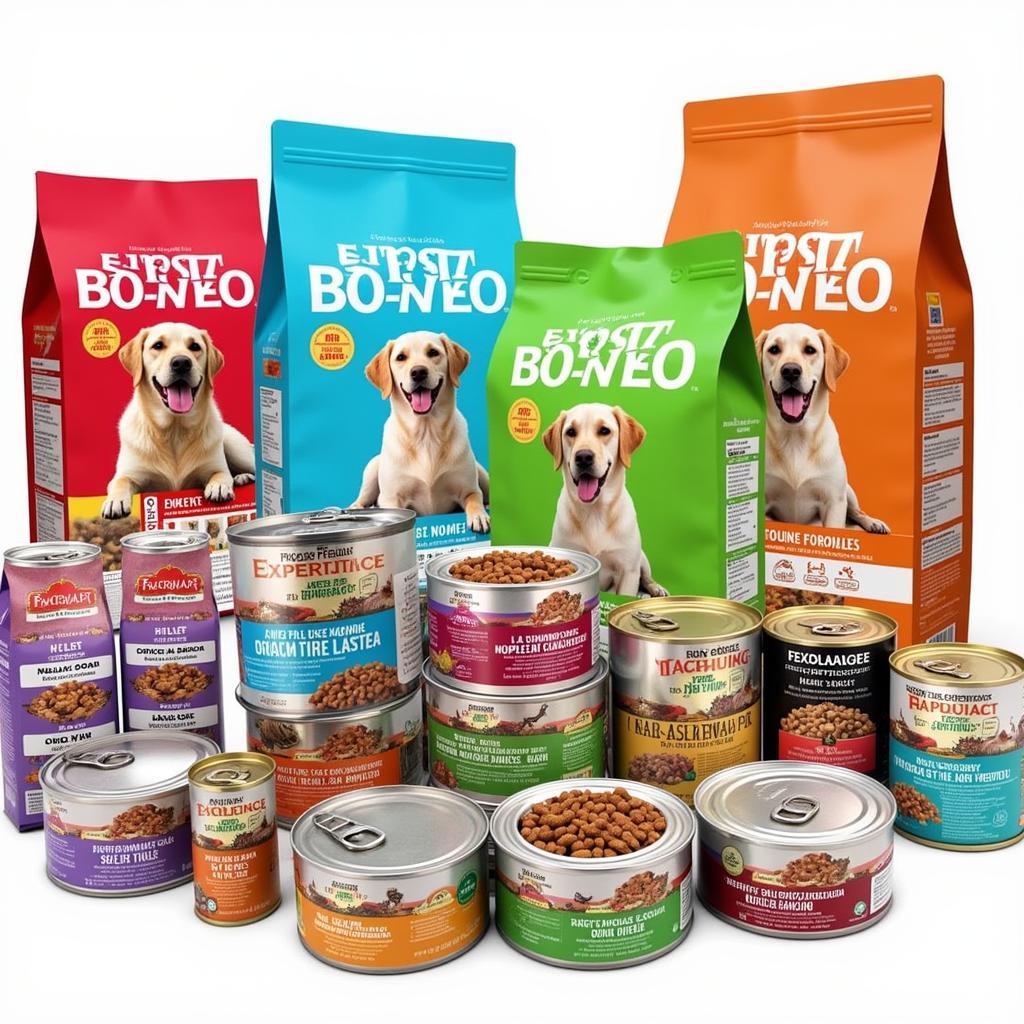Exotic Dog Food has taken the pet world by storm, offering a tantalizing array of unique proteins and flavors to tempt even the pickiest of eaters. But what exactly constitutes exotic dog food? Is it simply a passing trend, or does it offer genuine benefits for our furry friends? In this comprehensive guide, we’ll delve into the world of exotic dog food, exploring its potential benefits, addressing common concerns, and helping you determine if it’s the right choice for your beloved companion.
Unconventional Proteins: A World of Flavor Beyond Beef and Chicken
 Exotic Dog Food Ingredients
Exotic Dog Food Ingredients
While traditional dog food relies heavily on common protein sources like beef and chicken, exotic dog food ventures beyond the ordinary. Think kangaroo, venison, alligator, rabbit, and even insects! These novel proteins offer a welcome change for dogs with food sensitivities or allergies to more common meats.
Why Choose Exotic Proteins?
The appeal of exotic proteins extends beyond mere novelty. Here are some compelling reasons why pet parents are making the switch:
- Reduced Allergic Reactions: Exotic proteins are less likely to trigger allergic reactions in dogs with sensitivities to chicken, beef, or other common allergens.
- Enhanced Flavor and Palatability: Many dogs find exotic proteins incredibly palatable, making mealtime more enjoyable, especially for picky eaters.
- Nutritional Diversity: Exotic meats often boast a different nutritional profile compared to traditional sources, offering a wider array of vitamins, minerals, and amino acids.
Debunking Myths: Separating Fact from Fiction
 Dog Enjoying Exotic Food
Dog Enjoying Exotic Food
Despite its growing popularity, exotic dog food isn’t without its skeptics. Let’s address some common concerns:
- Digestibility: Some worry about the digestibility of exotic proteins. However, many of these meats, like kangaroo and venison, are lean and highly digestible, even for dogs with sensitive stomachs.
- Sourcing and Sustainability: It’s crucial to choose brands that prioritize ethical sourcing and sustainable practices when it comes to exotic ingredients. Look for certifications and transparency in their sourcing methods.
- Cost: Exotic dog food can be more expensive than traditional options due to the sourcing and processing of unique ingredients. However, the potential health benefits and increased palatability can make it a worthwhile investment for some pet owners.
Navigating the World of Exotic Dog Food: Tips for Pet Parents
 Variety of Exotic Dog Food Options
Variety of Exotic Dog Food Options
Ready to explore the world of exotic dog food? Here’s how to get started:
- Consult Your Veterinarian: Before making any significant dietary changes, it’s always wise to consult your veterinarian. They can assess your dog’s individual needs and advise on suitable protein sources.
- Gradual Transition: Introduce exotic dog food gradually to avoid digestive upset. Start by mixing a small amount with your dog’s current food and slowly increase the ratio over several days.
- Monitor Your Dog Closely: Observe your dog for any signs of allergies or digestive issues after switching to exotic dog food. If you notice any adverse reactions, discontinue feeding and consult your vet.
- Choose Reputable Brands: Opt for reputable brands that prioritize ingredient quality, ethical sourcing, and balanced nutrition. Reading reviews and comparing brands can help you make informed choices.
Conclusion: A World of Culinary Delights Awaits
Exotic dog food offers a world of culinary exploration for your canine companion. From novel proteins to enhanced flavors, it presents a compelling alternative to traditional dog food, especially for those with food sensitivities or picky palates. By carefully considering your dog’s individual needs, consulting with your veterinarian, and choosing reputable brands, you can embark on a delicious and nutritious adventure with your furry friend.
Don’t forget to check out our other articles on dog nutrition and explore our selection of premium dog food:
Need help choosing the right exotic dog food for your pup?
Contact our team of pet experts!
Phone: 02437655121
Email: minacones@gmail.com
Address: 3PGH+8R9, ĐT70A, thôn Trung, Bắc Từ Liêm, Hà Nội, Việt Nam.